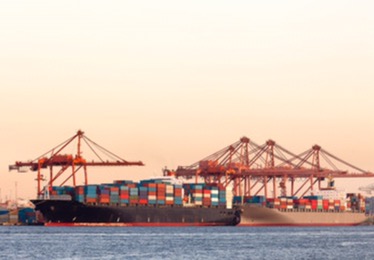According to last year’s Annual Business Survey, only 15.2 per cent of UK businesses are engaged in international trade. Yet, according to the UK Trade and Investment body, companies are 11 per cent more likely to survive if they do business overseas — these businesses also grow up to 59 per cent faster than businesses that don’t.
So, you have to wonder why so many companies are missing out on the benefits of exporting.
Of course, large business developments such as this come with their own risks and there’s a great deal of rules and regulations to consider, but your business could grow dramatically, making it all worthwhile.
At Chemoxy International we’ve been successfully exporting our products for a number of years, and we have really benefitted as a result.
Our sales portfolio is far more balanced, which means we aren’t affected as much when the domestic market weakens or slows down.
Plus, different markets present their own challenges — the demand for certain products varies from country to country, and there’s differences in legislation that we need to consider.
However, although these issues might seem like causes for concern, they’ve actually allowed us to create new, high-skilled jobs and expand our manufacturing capacity by more than 30 per cent.
Being able to watch our business go from strength to strength has been incredibly exciting and rewarding. If you’re thinking about exporting your goods, here is our advice for getting the most out of it.
Speak to independent experts
Chemoxy is an SME, so we rely heavily on the help of external experts. We’ve received a lot of support from our local Chamber of Commerce, the Chemical Industry Association, and the North East of England Process Industry Cluster.
More recently, we’ve worked with Strong and Herd, an import and export training and consultancy company, who have helped us to develop the knowledge we’ve needed to be successful.
This has been incredibly helpful for us. So, if you’re considering expanding your business overseas, it’s very wise to ask experts for their advice. Find your local Chamber of Commerce and consider applying for training and support from the Department of International Trade.
Research and plan
A company needs to do an extensive amount of research before beginning to export goods. This is because there’s a long list of rules and regulations you’ll need to abide by, a lot of channels you can go down, and a huge number of companies you could work with.
The first thing you must decide is where you’re going to be willing to export to. You could choose to do business in a hand-picked selection of countries, focus on only trading within the European Union (EU), or decide that you’re willing to deliver anywhere in the world.
Whichever option you go with, you’ll be required to follow certain rules and regulations. If you’re unsure of what these might be, take a look at the UK government’s exporting guide, which outlines everything you’ll need to consider.
Test potential shipping partners
It’s likely that you will benefit from trying out a number of shipping partners before choosing which is right for you. You can do this by carrying out small tests.
This will show you how responsive companies are, how much input they require from your business during the shipping process, and how reliable they are when it comes to the likes of delivery times.
You can then choose the company that suits your requirements and expectations best.
Beginning to export goods can be an incredibly exciting time for your business, as there’s so much potential for growth and development.
Of course, it can take a lot of hard work but, when you’re into the swing of things and reaping the benefits, you’ll wonder why you didn’t start sooner.






